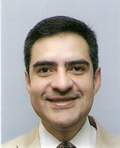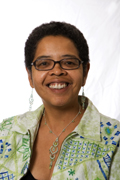The research team
We are academics with backgrounds in law, and political economy. Some of us are also life-long bingo players.
|
Dr. Kate Bedford, Reader in Law, Kent Law SchoolMy academic research is on law and political economy. I have previously focused my research on gender and sexuality in development lending, especially in Latin America, and on international debates about care policy. I am interested in bingo as a key form of working class women’s gambling, and because it often mixes charity and commerce. I therefore feel that it offers important lessons to academics and policymakers about gender, class, and the regulation of speculation. I have also played bingo since I was a child, and I enjoy learning about how the game is run, regulated, and played in different places. I will be leading the research on this project, drawing on previous research on bingo in seaside Kent (England), Ontario and Alberta (Canada). My favourite aspect of the research is hearing peoples' stories. |
 |
Dr. Oscar Alvarez-Macotela, Research Associate, Kent Law SchoolMy academic work focuses on law and development. I have undertaken research on law and financial development looking at both developed and emerging countries, with a focus on how policy and legal reforms can and have been used to boost local and regional economies globally. I am driven by the human aspect of these interventions. My main involvement with this project relates to case studies of bingo regulation in England, Wales and online play offered to residents of the European Union countries. I will be contributing to the research on this project by building on my past experience as law practitioner in international business and commercial law; on social anthropology research examining oral histories of daily life in Uganda, as well as on consumer studies and ethical finance with particular interest on ‘impact investment’ and ‘social return on investment’, where the goals of philanthropy and for-profit enterprises are increasingly converging. I think bingo is an intriguing activity. It is an old institution across countries that has survived and evolved over several centuries. Its study grasped my attention because it provides a remarkable opportunity to lift the veil of what might be seen as a ‘simple’ gambling game, and then to discover insights into some complexities of modern life, its cultural diversity, and the evolution of both our local and global communities and their economy. To some extent, this is a collective quest for the economic, social and other subtle benefits of bingo, which offers fresh insights into the new role of law to foster wellbeing in our time. |
 |
Dr. Donal Casey, Lecturer in European Law, Kent Law SchoolMy research concerns multilevel and transnational regulation, and the role that law, standards and other norms shape regulatory regimes. In particular, I am interested in how regulatory actors seek to legitimate their activities. I have published in leading international journals including the European Law Journal, the Journal of Law and Society, the British Food Journal and Regulation & Governance. I was a fellow of the Hague Institute for the Internationalisation of Law in connection with the project: Transnational Private Regulation: Constitutional Foundations and Governance Design. I have also previously held a visiting position at Osgoode Hall Law School (York University, Toronto) as a fellow of the Critical Research Law in Law and Society.
|
 |
Maria Luiza Kurban Jobim, Research Assistant, Kent Law SchoolMy academic research focuses on consumer and regulatory law with particular emphases on the economic and social aspects, and the extent to which the current legislation contributes to development. I enjoy the constant challenge of using past rulings and previous studies to analyse the effects of specific pieces of legislation and assess the level of impact such regulation has on curbing behaviour. |
 |
Professor Toni Williams, Professor of Law, Kent Law SchoolMy current research concerns regulation, economic development and the role of personal finance products such as loans and insurance in familial and household relationships. I have written about microcredit and financial education, and about financial consumer protection in the wake of the recent financial crisis. Much of my work focuses on the development of a transnational model of personal finance regulation that aims to increase household dependence on consumer finance products. I am interested in the gendered understandings of risk and responsibility that this model entails as well as the gender implications of increasing household reliance on personal finance markets. I have worked on these questions with colleagues in Brazil, Germany, Canada, Australia and Canada. I am excited about the bingo project because it engages with my interests in global and transnational changes to regulation and governance and gendered understandings of risk. More specifically, the Brazilian case study is an exciting opportunity to explore gender aspects of debates about the effects of personal credit expansion and recent reforms to gambling regulation. |




